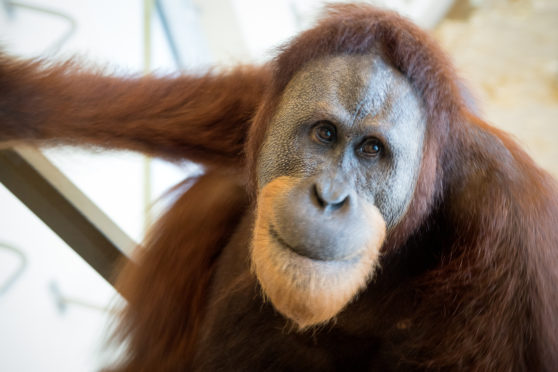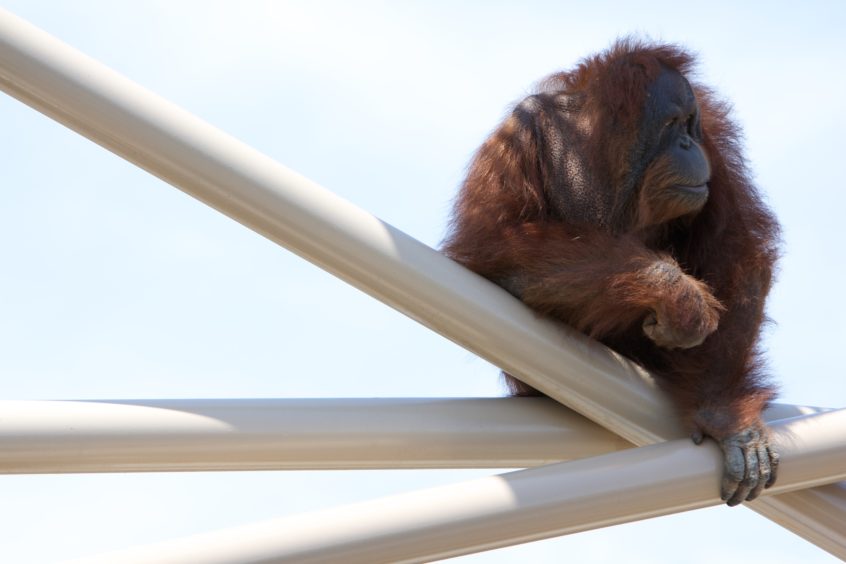Researchers at St Andrews University have discovered that orangutans can control their voice in a similar way to humans.
The breakthrough gives a unique insight into the evolution of human language.
Boffins from St Andrews collaborated with the University of Durham during the research, which is published in the journal Scientific Reports.
Working alongside animal care staff and researchers at Indianapolis Zoo in the US, the team studied Rocky, who was 11 years old at the time, and Knobi, 36, analysing how the orangutans used their voice to play a basic musical instrument.
It was previously thought the ability to control vocal fold oscillation, essential for speech, was unique to humans.
However, there is a growing volume of data evidencing voice control in great apes.
Researchers gave a kazoo, which is activated by the player’s voice, to the orangutans, which allowed the apes to produce a variety of sounds.
Lead researcher Dr Adriano Lameira from the School of Psychology and Neuroscience at St Andrews said: “Language defines human communication, but its evolution defies scientific explanation.
“Great apes, our closest relatives, may hold the key to how language evolved in our lineage. Our results provide the first positive diagnostic test of vocal production learning in great apes, namely active voicing, during novel voiced vocal production in orangutans.”
Dr Rob Shumaker, president of Indianapolis Zoo, said: “This important study redefines our understanding of how spoken language may have evolved. It also demonstrates that the abilities of orangutans, and likely all great apes, have been greatly underestimated.
“This new knowledge compels us to have a stronger conservation ethic at a time when all wild great ape populations face serious threats to their survival.”
The Simon Skjodt International Orangutan Center at Indianapolis Zoo is home to one of the largest groups of orangutans in any American zoo.











